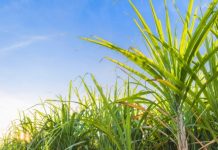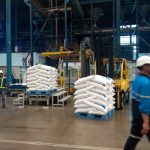The continued implementation of the Health Promotion Levy, commonly known as the sugar tax, could undermine efforts to find new markets for locally produced sugarcane, industry experts have warned, reports Freight News.
SA Canegrowers, an organisation representing 24,000 small-scale and 1,200 large-scale sugarcane growers, has called on Finance Minister Enoch Godongwana to scrap the tax. Their appeal comes ahead of Godongwana’s budget vote, with the industry body arguing that the levy places unnecessary strain on farmers.
One of the key alternative revenue streams identified under the Sugar Value Chain Master Plan 2030 is the production of sustainable aviation fuel from sugarcane. This plan aims to reverse the decline in sugarcane farming, which has been hit hard over the past decade by drought, high input costs, and cheap imports.
Research funded by the industry in 2021 estimated that diverting half of the country’s 19 million tonnes of annual sugarcane production toward ethanol could yield about 700 million litres of ethanol per year. This could then be converted into 433 million litres of sustainable aviation fuel—enough to power nearly 34,000 return flights between Cape Town and Johannesburg on a Boeing 737-800.
“The sugar tax puts excessive pressure on sugarcane growers in an already tough environment,” said SA Canegrowers CEO Dr. Thomas Funke.
“If farmers leave the industry, it threatens the viability of alternative projects like biofuels and sustainable aviation fuel, which depend on a stable sugarcane supply.”
Funke also highlighted the vital role of the sugar industry in rural economies, particularly in KwaZulu-Natal and Mpumalanga, where sugarcane farmers are often the primary employers. He stressed that sustainable aviation fuel could not only help preserve existing jobs but also create new economic opportunities.
A study by Nedlac found that in its first year alone (2018), the sugar tax resulted in over 16,000 job losses and wiped out R2 billion in income.
Last year, Godongwana paused planned tax increases, citing economic and environmental pressures on the industry. However, an economic impact study promised by the government is still pending.
“The only hard evidence we have is that the tax caused job losses, yet foreign-funded activists are calling for an increase without considering the damage to rural economies,” Funke said.
He also pointed out that the tax was introduced based on a single academic modelling study without real-world data to support its effectiveness.












